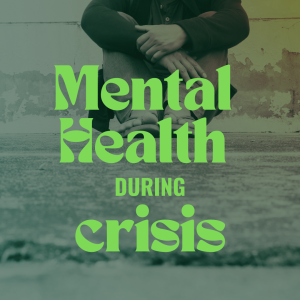Mental health is often a silent struggle, and many of us don’t realize when someone close to us is battling depression or suicidal thoughts. I’ve seen first-hand how easy it is to miss the signs especially when a loved one is still going about their daily activities. Depression doesn’t always look like sadness; sometimes, it’s hidden behind a smile or an “I’m fine” when they’re anything but fine.
According to the World Health Organization , over 280 million people worldwide suffer from depression, and suicide is the fourth leading cause of death among 15 to 29 year olds globally. In Nigeria alone, the suicide rate has been rising, with the Global Burden of Disease (GBD) report estimating that about 7,019 Nigerians died by suicide in 2019. These numbers remind us why it’s so crucial to recognize the warning signs and step in before it’s too late.
Understanding that Depression is More Than Just Feeling Sad
Depression is a mental health disorder that affects how a person thinks, feels, and behaves. It goes beyond temporary sadness and can last weeks, months, or even years if untreated. Many of us assume that depression is just extreme sadness, but it often presents in more subtle ways, such as:
- Loss of Interest in Activities – If a loved one stops enjoying hobbies or things they used to love, it might be a red flag. I once had a friend who loved painting, but when depression hit, she abandoned it entirely.
- Constant Fatigue and Low Energy – Depression drains a person’s energy. If someone close to you is always tired, oversleeping, or struggling to get out of bed, it could be more than just exhaustion.
- Changes in Appetite and Weight – A sudden loss or increase in appetite is another sign. Some people stop eating altogether, while others turn to food for comfort.
- Difficulty Concentrating – Depression makes it hard to focus, remember things, or make decisions. If a loved one seems forgetful or struggles to keep up with conversations, they might be battling something deeper.
- Expressions of Worthlessness or Guilt – People experiencing depression often feel like a burden. If someone repeatedly talks about feeling useless, unloved, or like a failure, they might need help.
Recognizing Suicidal Ideation: When Depression Becomes Dangerous
Not everyone with depression has suicidal thoughts, but those who do often show warning signs. According to a 2016 study published by renowned psychiatry professor Adewuya, pointed that about 7.28% of Nigerians have considered suicide at some point, while Tosin Oyetunji and other experts in 2021 disclosed that the suicide rate for Nigeria is 17.3 per 100,000 people. This figure stands way higher than the global point of 10.1 and as such identifying the signs of depression can be life saving
- Talking About Death or Wanting to Disappear
Statements like “I wish I could just disappear” or “I don’t see the point of living” should never be ignored. Even if said jokingly, these could be cries for help.
- Withdrawing from Loved Ones
People struggling with suicidal thoughts often isolate themselves. If someone stops answering calls, avoids social gatherings, or disconnects from friends and family, it might be a sign they’re struggling internally.
- Giving Away Belongings
One of the most alarming signs is when a person starts giving away cherished possessions or making unusual arrangements, such as writing a will without any clear reason.
- Engaging in Reckless Behaviour
Self destructive actions like reckless driving, excessive drinking, or drug use can indicate someone no longer values their life.
- Sudden Mood Improvement After Deep Sadness
Strangely, when a person who has been deeply depressed suddenly seems happy and at peace, it might not mean they’re getting better. Sometimes, this happens because they’ve made a decision to end their life and feel relief knowing the pain will soon end.
What You Can Do to Help
If you notice these signs in a loved one, don’t wait, take action. Here’s what I’ve learned from professionals and personal experience
- Start a Conversation
Ask them how they’re feeling in a non judgmental way. A simple “I’ve noticed you’ve been feeling down lately, do you want to talk about it?” can open the door to an important conversation. - Listen Without Trying to “Fix” Things
Many times, people just need someone to listen. Avoid phrases like “Just snap out of it” or “Other people have it worse.” Instead, validate their feelings by saying, “I hear you, and I’m here for you.” - Encourage Professional Help
Depression and suicidal thoughts are medical issues, not personal weaknesses. Encourage them to seek professional support from mental health organizations like LagosMinD, or a licensed therapist. - Stay Present and Check In Regularly
Support doesn’t end after one conversation. Keep checking in, send messages, and remind them that they’re not alone. - Remove Immediate Dangers
If they express suicidal thoughts, help remove anything they might use to harm themselves, such as medications, sharp objects, or firearms. - Call for Help If Necessary
If the risk is immediate, don’t hesitate to involve mental health professionals or emergency services. LagosMinD has a mental health helpline that provides confidential support. (090-9000-6463 or 020-1410-6463)
Depression and suicidal ideation are serious but treatable conditions. The key is recognizing the signs early and stepping in with support. I know it can feel overwhelming to help someone going through this, but sometimes, just being there and showing that you care can make all the difference.
If you or someone you know is struggling, don’t ignore it. Seek help. Speak up. You never know whose life you might save. Check our contact information and help someone today.


